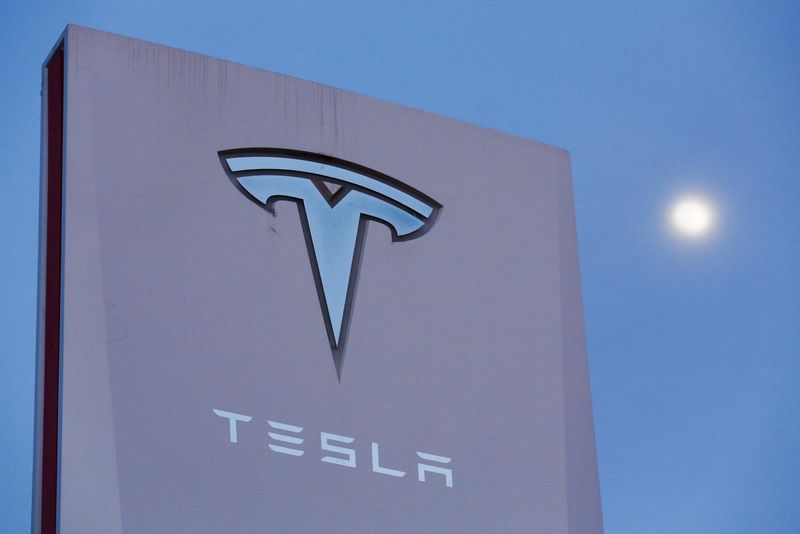Redwire and Red Cat partner on drone integration for U.S. Army missions
Investing.com -- Wells Fargo added Tesla (NASDAQ:TSLA) to its Q2 2025 Tactical Ideas List as an Underweight in a note Tuesday, citing declining delivery growth, price-cut challenges, and execution risks in its autonomous vehicle initiatives.
The firm maintains a $130 price target on the stock, implying significant downside from current levels.
“We continue to see delivery growth declines & diminished return on price cuts driving a ~280bps y/y decline in 2025 auto GM ex credits,” Wells Fargo (NYSE:WFC) analysts wrote.
The bank says Tesla’s deliveries are trending lower across key markets, with Europe down 40%, China down 14%, and North America down 3% quarter-to-date through February.
Wells Fargo believes Tesla has few remaining levers to drive volume growth beyond price cuts and model refreshes.
The firm is also cautious on Tesla’s upcoming "Model 2.5," an affordable EV expected in Q2.
“Details on the vehicle are limited…which makes us cautious,” analysts noted, adding that historically, new models cannibalize about 16% of related model volume.
Wells Fargo expects Tesla’s earnings to decline significantly in 2025, driven by lower deliveries, price reductions, and intensifying global competition.
The firm forecasts a ~25% year-over-year EPS deterioration, with additional risks from potential cuts to the $7,500 IRA EV buyer credit in the second half of the year.
The analysts remain skeptical about Tesla’s Cybercab initiative in Austin, citing limited unsupervised testing and safety concerns with its vision-only autonomous approach.
“Anything short of a deployed fleet ride-hailing paying consumers by this June will likely be seen as disappointing,” they wrote.
Wells Fargo also argues that Tesla screens poorly relative to "Magnificent 7" peers, trading at 96x P/E versus 25x for its peers, with forecasted EPS growth of just 3% versus the 15% Mag 7 average.
Growth will likely remain challenged in the core auto business as Chinese automakers like BYD (SZ:002594) are beginning to emerge as the BEV leaders. We also see risks around increased US regulation on Autopilot & risk to the rollout of previously promised technologies (Dojo, Optimus, true FSD, etc.),” concludes the bank.
